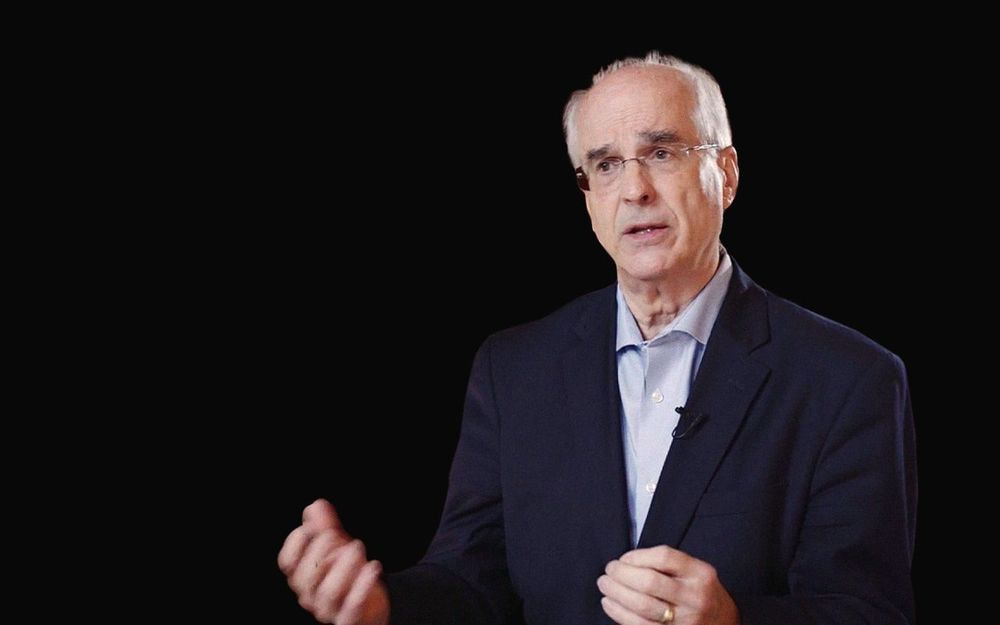A background to the research on the Covenants
 Dr Emad Shahin
Dr Emad ShahinDr. Emad El-Din Shahin is the Dean of the College of Islamic Studies (CIS), Hamad bin Khalifa University, Qatar Foundation.
I am Emad El-Din Shahin, the Dean of the College of Islamic Studies at Hamad bin Khalifa university.
The Covenants of the Prophetﷺ are an excellent source for studying the Sīra [biography] of the Prophet Muhammadﷺ.
In 2017, the College of Islamic Studies embarked on an innovative and well integrated project to examine these Covenants from a comparable perspective so as to fill an important gap in the examination and study of the biography of the Prophet Muhammadﷺ.
What are the Covenants?
This is a practice that Prophet Muhammadﷺ institutionalized within the mindset, the psyche of the umma [community] itself – that it has an eternal binding commitment to protect People of the Book.
So what are the Covenants of the Prophetﷺ? These are documents that the Prophet Muhammadﷺ offered to the non-Muslim communities – Christians, Jews, among others, that assured them of protection of their property, rights, lives, wealth, churches, synagogues and offered them peaceful coexistence with the Muslim community.
These documents also became part of the state policy of successive rulers and governors and until today they are revered, respected and institutionalized; this is a practice that Prophet Muhammadﷺ institutionalized within the mindset, the psyche of the umma [community] itself – that it has an eternal binding commitment to protect the People of the Book (what were then known as the People of the Book) the Christians and Jews, and of course the concept started to expand. So, it offered protection to them until the Day of Judgment. That’s an eternal, immutable protection for these communities.
To examine these documents or what we nowadays called treatises, if you wish, our team of researchers led by Professor Ibrahim Zain and Mr Ahmed Al Wakil, undertook field trips to more than a dozen countries to locate these documents in order to undertake their study. They went to Turkey, Greece, the Vatican, Armenia, Lebanon, Egypt, Bosnia, Croatia, Italy and Vienna, among others.
And the purpose, of course, was to obtain copies of these documents and then run a comparable study to see the similarities, the differences, and check on the authenticity of these documents. Many church leaders actually welcomed this step and offered immense help by sharing the documents for examination and study.
Some of the findings are quite remarkable, particularly the similarities among all these documents. For example, the scribe who wrote these documents always wrote a date, the content in regard to protection, and reference to the source of this protection, which is Allah subḥana wa ta’ala [God, most glorified, most high] and his Prophetﷺ which were always present as well as the seal, of course, in these documents, and they ran some kind of verification and came up with remarkable findings that are shared by the scholarly community including the Vatican, among other places.
Historic context of the Covenants
If we examine these Covenants within the ongoing context of that time, we can clearly see that they were extremely important and they set a new development when it came to relations with people who are different in terms of faith, in terms of religions, and also in terms of histories.
They set a new development when it came to relations with people who are different in terms of faith, in terms of religions and also in terms of histories.
For example, if we consider the general context that prevailed at that time, it was a context of war, feuds and the entire area of the Arabian peninsula was surrounded by two super regional powers: the Byzantines and the Sasanians, who were frequently at war. War often raged even within Arabia itself; therefore the norm was actually war, hostility and insecurity.
The Covenants are within this context, and that’s what gives them importance, because they set a new development where mutual rights and duties are well identified and they provide the basis for relationships between differing communities. And this is really a great accomplishment.
Rights, freedom and community relations
So what are these rights and duties? Of course, first and foremost is the right of protection and the basis of coexistence – that these communities deserve protection. The state of relation between them is not war; it is not hostility, but coexistence and recognition of pluralism and differences. Some of these Covenants clearly stipulated, for example, the obligation of mutual defense between these communities, between Muslims and non-Muslims, against any hostile, external power.
They also deal with financial obligations, for example, the collection of taxes or duties that the Muslims are supposed to offer to non-Muslims within certain economic and financial interactions or transactions.
The state of relation between them is not war, it is not hostility, but as a matter of fact, the relationship is of coexistence.
Of course, most importantly is the assurance of the existence of these communities and their totality, meaning as people who have their own religion, they have the right to practice the religion; as a people who have their own leaders and social and financial interactions in accordance with their religion and teachings. These stipulations were novel and set universal values that capture the essence of the Islamic message.
Universal values
So in addition to the fact that these Covenants could be considered a manifestation or a reflection of the nature of international relations, if we use modern day terms, in terms of the relations between Muslims and non-Muslims and the Muslim state and non-Muslim states and communities and so on and so forth, they also reflect, for me, a very important dimension – the universal values that Islam has enshrined in these documents. They are a reflection of very specific and very clear universal values that Islam actually shares with humanity and which the Prophet Muhammadﷺ has enshrined in the mindset of Muslims.
The first universal value, and by universal values here I mean that these are irreducible values, they cannot be reduced into parts. They are universally applicable and they are irreducible. They cannot be partitioned; they cannot be segmented. The first value is the dignity of the human being and the Covenants embody this by recognizing the importance of the protection, safety, security and the physical wellbeing of the human being in all its respects. That dignity also reflects on the right and the freedom of choice, because the documents themselves recognize the other, by recognizing non-Muslims and their rights to choose their religion, their right to practice their faith and even the right to have their churches and synagogues protected.
This is a reflection of another important fundamental principle in Islam, which is the non-coercion in Islam. You cannot compel people to follow Islam. Fighting jihad as we now know, is not actually for converting people to Islam. Jihad is mainly for fending off any transgression against the Muslim community and the Muslim peoples. This is a very important and fundamental value - the recognition of the importance of human dignity and the freedom of choice of human beings to embrace and practice the faith that they wish and select.
The second important universal value that these Covenants, as concluded by Prophet Muhammadﷺ, reveal or embody is the value of pluralism. The practice of Prophet Muhammadﷺ shows us that he recognizes pluralism and he actually enshrined this recognition of pluralism of non-Muslim communities and their rights, as we explained, into covenants, treaties, and agreements as another fundamental universal value of Islam – the recognition of difference.
Recognising others
Most of these Covenants, if not all of them, recognize the leadership of the non-Muslim community
Now lastly, we consider recognition. Recognition is a very important concept as it was practised and proposed by the Prophet Muhammadﷺ. Even nowadays the concept of citizenship cannot address this idea of recognition of non-Muslims as communities, that they have the right to practice their own faith. Even that they have their own financial and legal autonomy within the nation state itself.
Nowadays, we recognize people as individuals, and citizens are individuals within the states, but some modern nation states have immense difficulty in recognizing the rights of communities within nation states and the rights of these communities to have their own particular religious, cultural, ethnic practices without prejudice and without racism.
Fourteen centuries ago, Islam resolved all these issues, by recognizing the autonomy and semi-autonomy of these communities within the nation state or under the sovereignty of a certain authority. For example, most of these Covenants, if not all of them, recognize the leadership of the non-Muslim community – the priests or rabbis, and so on, over their community.
Also, they recognize, for example, their freedom to practice, the freedom to worship, the freedom of their property and wealth. All this is recognized in a communal sense. This is a very important step in coexistence and is highly relevant to the coexistence of different communities nowadays. in terms of providing a common ground, a basis, a successful formula for collaboration and cooperation between communities and nations. And this is another value that these Covenants enshrine – the value of cooperation between different communities and different nations, regardless of their differences in religions or difference in ethnic backgrounds.






